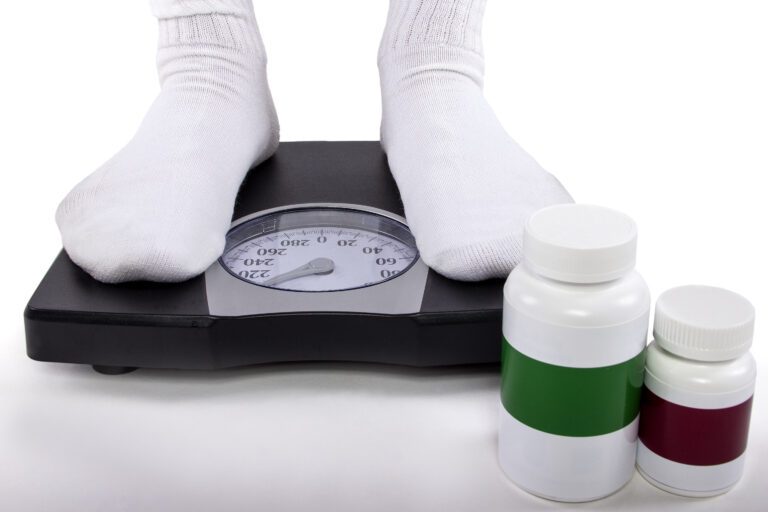The Antipsychiatry Movement Is a Deterrent to the Treatment of Bipolar Disorder
Wikipedia defines antipsychiatry as “a movement based on the view that psychiatric treatment is more often damaging than helpful to patients. It considers psychiatry a coercive instrument of oppression due to an unequal power relationship between doctor and patient and a highly subjective diagnostic process. It has been active in various forms for two centuries.”
The antipsychiatry movement is based on several isolated cases and misinformation. It also stems from fear and the feeling of being out of control.
Antipsychiatry and How it Has Impacted Me
I already have an issue with paranoia. I don’t need others telling me about conspiracy theories. My ability to function and manage my bipolar disorder takes precedence over hate, spite, and misinformation.
I am all about hearing the experiences of others. It is one of my favorite things to learn about on the internet. The impact of someone’s journey is deeper to me than that of a medical textbook.
That being said, if you belittle me for my experience and spew hate all over me, I cannot interact any longer.
I hope that doesn’t sound cold, but it is one of my boundaries. Education is extremely important to me but if the other person does not have an open mind, I cannot waste my energy to force it open.
Recently, I had a handful of interactions where the other person did not like my support of the medical model, which consists of medication management and therapy.
When it comes to my interactions, I do not tolerate:
- Hate
- Bullying (both cyber and in-person)
- Name-calling
- Prejudice
Those interactions all fit under this list.
The antipsychiatry movement has been the instigator of each of these attacks.
Pill Shaming
The amount of hate I feel from speaking about medication management seems to increase daily. This is especially true when it comes to my efforts to advocate for those of us living with bipolar disorder.
Social media is a fantastic platform to help educate the masses. Like anything else, it does not come without consequence.
As I mentioned, people on the internet have chastised me and degraded me for utilizing medication to manage my bipolar disorder.
In order to function, I need my meds.
Plain.
Simple.
The truth.
I have seen many instances of pill shaming on social media and all over the internet.
For example, I posted a video on one of the social media platforms explaining the positive impact of medication on the lives of the mentally ill. It wasn’t my own video, but I shared it.
The video contained a compilation of individual stories and the success they felt with managing their mental illness with the use of psychotropic medication. The video inspired hope inside me and I wanted to share it with others struggling with medication management.
Instead of hope and inspiration, I received the exact opposite.
The response consisted of hate, fear, and misinformation.
I was told:
- Stop spreading lies
- Stop helping to fatten the pockets of big pharma
- Medication does not work
- And more
I don’t need to go over all the aggressive comments I received.
The response I received pointed to a reality that I did not see so clearly before these interactions:
The antipsychiatry movement is taking us steps backward.
The Antipsychiatry Movement
I can completely empathize with those who are skeptical of psychotropic medication. If someone diagnosed me in today’s society without the past 20+ years of lived experience managing my own bipolar disorder, I would question medication management too.
My reality is that I DO have 20+ years of experience managing my bipolar disorder. In fact, I have become an expert in my symptomology regarding bipolar disorder.
Without medication, I simply could not function.
I am grateful I have had such wonderful success in managing my bipolar disorder. It is easy for me to disregard the hateful spewing of propaganda and uneducated statements about scientifically backed options for treatment.
Stigma, pill shaming, and the antipsychiatry movement shame those looking to treat and manage bipolar disorder. It can deter those who want to seek out treatment.
I completely empathize with those feelings of shame. I was not open about having bipolar disorder until the beginning of 2017.
In 2017, I came to a point where my desire to help others and show that bipolar disorder can be successfully treated with the right treatment overcame my personal shame.
Don’t get me wrong, I have been managing my bipolar disorder since the late 1990s. I accepted my diagnosis of bipolar disorder right away and took steps to proactively manage my illness from the gecko.
Impact of Stigma, Pill Shaming, & the Antipsychiatry Movement
Keeping my diagnosis under wraps was a direct result of the stigma I felt from those around me.
Compared to when I was first diagnosed back in 1999, I feel like there has been a slight reduction in the societal stigma of bipolar disorder today. That slight reduction in stigma is far surpassed by the negative impact of pill shaming and the antipsychiatry movement.
It is nice to get input from those around you, your friends, family, colleagues, and neighbors. Just do not let them dictate how you treat your bipolar disorder and manage it.
In the end, it is your body. You will live with your body until you die. How you decide to treat it is your right, whether good or bad.
My biggest piece of advice is to try treatment methods that are scientifically backed with a high success rate. Here, I am talking about the use of medication management in the treatment of your bipolar disorder.
I may get some flax with this recommendation, but I feel I have a moral obligation to express it. My personal experience proves to me that medication works. One case doesn’t cut it though. Over the 20+ years since my diagnosis, I have met thousands of individuals who successfully manage their bipolar disorder with medication.
To me, I don’t need to read articles validating medication usage. I have seen more than enough evidence firsthand to quell any doubts.
That being said, I am in no way saying that medication is the only part of my treatment plan. I have followed the medical model—medication management and therapy—of treatment since day one. That is the foundation of my treatment plan.
Managing My Bipolar Disorder
In addition to the medical model of treatment, I utilize several other methodologies to manage my bipolar disorder:
- Lifting weights (exercise) every day. Physical fitness is next in importance (for me) to the medical model of treatment.
- Make healthy eating choices as in what I eat, portion size, and the amount of sugar in my meals. I do my best to maintain a consistent sugar level throughout the day.
- Get enough sleep. I do my best to get to bed at the same time each night and get up at the same time each day.
- Gratitude first thing when I wake up. I make a mental list of 5 things I am grateful for upon waking.
- Breathing exercises throughout the day. I focus on my breathing throughout the day with deep inhalations and exhalations.
- Routine in my daily schedule. Maintaining a daily routine has helped to reduce my anxiety and maintain consistency in my life. Not to mention, it reduces stress because I don’t have these surprises throughout the day.
- Drink plenty of water. Drinking water seems simple enough, right? Even slight dehydration can lead to irritability, mood instability, anxiety, and exhaustion. Do yourself a favor and keep a water bottle around to take some chugs throughout the day.
Last Thoughts
The treatment of bipolar disorder is unique to each case.
One commonality I have found through the decades of living with bipolar is that managing this illness is an evolution as I age and grow in years. As my mind and body change, so does my actual treatment plan and the way I manage my bipolar disorder.
The most successful cases of those managing bipolar disorder use a multidimensional approach. For example, you can see from my list above that I employ many daily methodologies to manage my illness.
My biggest point is to explore methods of treatment that are scientifically backed and proven. The use of medication in tandem with therapy to treat bipolar disorder is scientifically based on research and facts.
When finding the right cocktail of medication, realize that it will take time. If you find a medication that works for you right away, I’m overjoyed because that is the exception and not the rule.
Keep in mind that everyone does not respond similarly to the same medication or experience the same side effects. I want to emphasize this because you’ll hear stories all over the internet about this particular miracle drug or this other drug that destroys lives.
Personally, I try not to discuss the names of meds because what gave me the worst side effect in the world may be the exact fit for your unique biology.
Next time you hear a story or a fact, remember to ask yourself, is this statement based on simple conjecture or a scientifically backed fact?





